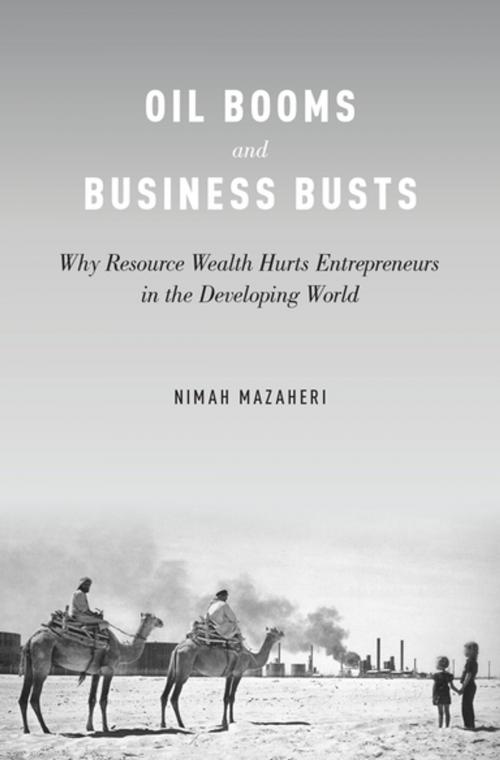Oil Booms and Business Busts
Why Resource Wealth Hurts Entrepreneurs in the Developing World
Nonfiction, Social & Cultural Studies, Political Science, Politics, Labour & Industrial Relations, International, International Relations| Author: | Nimah Mazaheri | ISBN: | 9780190630522 |
| Publisher: | Oxford University Press | Publication: | May 2, 2016 |
| Imprint: | Oxford University Press | Language: | English |
| Author: | Nimah Mazaheri |
| ISBN: | 9780190630522 |
| Publisher: | Oxford University Press |
| Publication: | May 2, 2016 |
| Imprint: | Oxford University Press |
| Language: | English |
Oil Booms and Business Busts looks at how government policymaking shapes a puzzling phenomenon in economic development--the "curse" of natural resources. It investigates how oil and mineral wealth shapes a government's policies toward the business environment, entrepreneurs, and innovative activities. Other similar work either ignores the role of government policymaking in oil wealth, treats it as another effect of the rentier state, or dismisses it as illogical and incoherent. One might expect that in light of such abundances governments would encourage entrepreneurship and new businesses to compete and grow in the market, but Nimah Mazaheri shows that resource wealth instead incentivizes policymakers to focus on satisfying the interests of existing elites. They, more than oil-poor nations, institute barriers that impede the activities of domestic firms and entrepreneurs, with the result being unimpressive economic performance over the past half-century. This is the first book to examine how oil wealth affects non-elite actors who own the small and medium-sized firms that absorb a majority of the economic and labor force of these countries. Looking at two of the most important oil-producing countries in the world, Iran and Saudi Arabia, the book provides an original theory about the factors that shape a logic of policymaking in oil producing states. To extend his theory Mazaheri also looks at India, which is one of the world's main coal producers. He does this to show the effects of the gain and loss of a massive resource windfall on state policymaking toward the private sector. Ultimately Mazaheri argues that such policymaking impedes the development of a middle class and therefore democratization--a factor that can have overarching political repercussions for governmental stability.
Oil Booms and Business Busts looks at how government policymaking shapes a puzzling phenomenon in economic development--the "curse" of natural resources. It investigates how oil and mineral wealth shapes a government's policies toward the business environment, entrepreneurs, and innovative activities. Other similar work either ignores the role of government policymaking in oil wealth, treats it as another effect of the rentier state, or dismisses it as illogical and incoherent. One might expect that in light of such abundances governments would encourage entrepreneurship and new businesses to compete and grow in the market, but Nimah Mazaheri shows that resource wealth instead incentivizes policymakers to focus on satisfying the interests of existing elites. They, more than oil-poor nations, institute barriers that impede the activities of domestic firms and entrepreneurs, with the result being unimpressive economic performance over the past half-century. This is the first book to examine how oil wealth affects non-elite actors who own the small and medium-sized firms that absorb a majority of the economic and labor force of these countries. Looking at two of the most important oil-producing countries in the world, Iran and Saudi Arabia, the book provides an original theory about the factors that shape a logic of policymaking in oil producing states. To extend his theory Mazaheri also looks at India, which is one of the world's main coal producers. He does this to show the effects of the gain and loss of a massive resource windfall on state policymaking toward the private sector. Ultimately Mazaheri argues that such policymaking impedes the development of a middle class and therefore democratization--a factor that can have overarching political repercussions for governmental stability.















